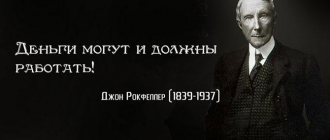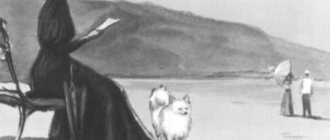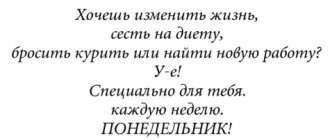Saadi - biography and work of the poet and thinker
Saadi is a Persian thinker, poet and writer, a representative of practical Sufism (one of the main directions of classical Islamic philosophy). His real name is Muslihaddin Abu Muhammad Abdallah ibn Mushrifaddi.
Saadi was probably born in 1181 in Shiraz. His nickname came from the atabek of Fars Saad ibn Zangi, at whose court the poet’s father served in the period from 1195 to 1226. Saadi’s father died early, and his overlord took custody of the child. In gratitude to his patron, the poet began to sign all his poems with the pseudonym Saadi.
While studying at the Nizamiya Theological Academy in Baghdad, Saadi sincerely tried to comprehend the ascetic ideals of the Sufi sheikhs. But the poems written by the young poet in that period (mid-1220s) were filled with love for life and the joys that it carries. Most of all, he loved music, which he repeatedly admitted even in his old age.
In 1226, as a result of the Mongol invasion, atabek Saad ibn Zangi was overthrown, and Saadi was forced to flee. For thirty years he led the life of a dervish, wandering from end to end of the vast Muslim world. This period of Saadi's life is filled with many trials. So, in India, in order to save his life, he had to pretend to accept the faith of fire worshipers, and then escape, killing the guard priest with a stone. Saadi made a pilgrimage to Mecca fourteen times and was a preacher in Damascus and Baalbek. Later, when he retired to the desert near Jerusalem, he was captured by the Crusaders. They sent Saadi to the coast of Syria, to Tripoli, where a rich man they knew bought him from the knights for 10 ducats and forced him to marry his ugly and harmful daughter. Saadi could not stand this fate and fled to North Africa. After long wanderings through the lands of Asia Minor, he managed to return to his native Shiraz, where, under the patronage of his son Saad Abu Bakr, he lived until the end of his life in a foothill monastery.
During his wandering life, Saadi wrote many works, but two voluminous treatises received historical significance. Thus, in 1257 he completed the greatest work of Sufi literature - the poetic treatise “Bostan” (“Fruit Garden”). And just a year later, the world saw another of his creations, this time prose interspersed with poetry - the treatise “Gulustan” (“Flower Garden”). The work also uses many folk proverbs and sayings.
Other works of the great author relate mainly to lyrics. Saadi's greatest contribution to Muslim literature is that he was able to combine the Sufi ghazal with the love ghazal in his work.
(Translation by V. Derzhavin)
Gazelle
- I am in love with these sounds, this groan that hurts my heart.
- I'm careless; and my day floats by vaguely, like a dream.
- Nights. Sleepless nights waiting for my bright-eyed one,
- But the light with which the whole world is illuminated dims before her.
- If I get to see her tender face again -
- I will call myself happy until the end of time.
- I am not a husband if I hide my chest from the stones of censure,
- The husband is protected from the spear by his strong soul, like a shield.
- Without experiencing misfortune, you will not achieve your cherished happiness,
- Whoever waited for Novruz, he endured the winter cold.
- Although the reapers were wise, they did not know Leili’s secret.
- Only Majnum knew who the entire harvest of their bedrooms was.
- The dream of lovers that plays with the riches of the world with faith,
- He does not reap the harvest, but is endowed with countless goods.
- You catch the other one with a lasso! We are faithful servants,
- After all, there is no need to hobble a horse that has been tamed for a long time.
- Yesterday has flown away, but tomorrow has not yet come.
- Saadi, only today you are both free and strong.
Mausoleum
- Mausoleum of Saadi in Shiraz, Iran
- Mosaic in his mausoleum
- Saadi's tomb in his mausoleum
- Tomb of Sheikh Saadi by Eugène Flandin, 1851
- Tomb of Saadi Pascal Coste, 1867
- Saadi's Tomb from the Sky, April 20, 2014
- Saadi's grave at the entrance, April 20, 2014
- Entrance part of Saadi's tomb, September 18, 2021
- Inside the Tomb of Saadi-Shirazi, December 18, 2021
Recommendations
- Brown, E. G. (1906, reprinted 1956). Literary History of Persia
, Volume 2: From Ferdowsi to Saadi. Cambridge University Press. - Chopra, R.M., "Great Poets of Classical Persian", Sparrow Edition, Kolkata, 2014 (ISBN 978-81-89140-75-5)
- Homerin, Th. Emil (1983). "Saadi's Somnathia". Iranian Studies
, Vol. 16, No. 1/2 (Winter - Spring, 1983), pp. 31–50. - Katuzyan, Khoma (2006). Saadi, Poet of Life, Love and Compassion
(a comprehensive study of Saadi and his works). 2006. ISBN 1-85168-473-5. - Southgate, Minu S. (1984). "Men, Women and Boys: Love and Sex in Saadi's Work". Iranian Studies
, Vol. 17, No. 4 (Fall, 1984), pp. 413–452. - Wickens, G. M. (1985), Bustan of Sheikh Moslehedeen Saadi Shirazi
(English translation and Persian original). 1985. Iranian National Commission for UNESCO, No. 46. - Rypka, Jan (1968). History of Iranian Literature
. Publishing. OCLC 460598. ISBN 90-277-0143-1 - Thaxton, W. M. (2008). Gulistan Saadi
. (Bilingual. English translation, Persian text on front page). ISBN 978-1-58814-058-6
Excerpt characterizing Saadi
A war of this kind was called partisan and they believed that by calling it that, they explained its meaning. Meanwhile, this kind of war not only does not fit any rules, but is directly opposite to the well-known and recognized infallible tactical rule. This rule says that the attacker must concentrate his troops in order to be stronger than the enemy at the moment of battle. Guerrilla warfare (always successful, as history shows) is the exact opposite of this rule. This contradiction occurs because military science accepts the strength of troops as identical with their number. Military science says that the more troops, the more power. Les gros bataillons ont toujours raison. [Right is always on the side of large armies.] In saying this, military science is similar to that mechanics which, based on considering forces only in relation to their masses, would say that forces are equal or unequal to each other because they are equal or unequal masses. Force (amount of motion) is the product of mass and speed. In military affairs, the strength of an army is also the product of the mass by something, some unknown x. Military science, seeing in history countless examples of the fact that the mass of troops does not coincide with the strength, that small detachments defeat large ones, vaguely recognizes the existence of this unknown factor and tries to find it either in geometric construction, then in weapons, or - the most common - in the genius of the commanders. But substituting all these multiplier values does not produce results consistent with historical facts. Meanwhile, one only has to abandon the false view that has been established, for the sake of the heroes, about the reality of the orders of the highest authorities during the war in order to find this unknown x. X this is the spirit of the army, that is, a greater or lesser desire to fight and expose oneself to the dangers of all the people who make up the army, completely regardless of whether people fight under the command of geniuses or non-geniuses, in three or two lines, with clubs or guns firing thirty once a minute. People who have the greatest desire to fight will always put themselves in the most favorable conditions for a fight. The spirit of the army is a multiplier for mass, giving the product of force. To determine and express the value of the spirit of the army, this unknown factor, is the task of science. This task is possible only when we stop arbitrarily substituting instead of the value of the entire unknown X those conditions under which force is manifested, such as: orders of the commander, weapons, etc., taking them as the value of the multiplier, and recognize this unknown in all its integrity, that is, as a greater or lesser desire to fight and expose oneself to danger. Then only by expressing known historical facts in equations and by comparing the relative value of this unknown can we hope to determine the unknown itself. Ten people, battalions or divisions, fighting with fifteen people, battalions or divisions, defeated fifteen, that is, they killed and captured everyone without a trace and themselves lost four; therefore, four were destroyed on one side and fifteen on the other. Therefore four was equal to fifteen, and therefore 4a:=15y. Therefore, w: g/==15:4. This equation does not give the value of the unknown, but it does give the relationship between two unknowns. And by subsuming various historical units (battles, campaigns, periods of war) under such equations, we obtain series of numbers in which laws must exist and can be discovered. The tactical rule that one must act in masses when advancing and separately when retreating unconsciously confirms only the truth that the strength of an army depends on its spirit. In order to lead people under the cannonballs, more discipline is needed, which can only be achieved by moving in masses, than in order to fight off attackers. But this rule, which loses sight of the spirit of the army, constantly turns out to be incorrect and is especially strikingly contrary to reality where there is a strong rise or decline in the spirit of the army - in all people's wars. The French, retreating in 1812, although they should have defended themselves separately, according to tactics, huddled together, because the spirit of the army had fallen so low that only the mass held the army together. The Russians, on the contrary, according to tactics, should have attacked en masse, but in reality they are fragmented, because the spirit is so high that individuals strike without the orders of the French and do not need coercion in order to expose themselves to labor and danger. The so-called partisan war began with the enemy’s entry into Smolensk. Before the guerrilla war was officially accepted by our government, thousands of people of the enemy army - backward marauders, foragers - were exterminated by the Cossacks and peasants, who beat these people as unconsciously as dogs unconsciously kill a runaway rabid dog. Denis Davydov, with his Russian instinct, was the first to understand the meaning of that terrible club, which, without asking the rules of military art, destroyed the French, and to him belongs the glory of the first step to legitimize this method of war. On August 24, Davydov’s first partisan detachment was established, and after his detachment others began to be established. The further the campaign progressed, the more the number of these detachments increased. The partisans destroyed the Great Army piece by piece. They picked up those fallen leaves that fell of their own accord from the withered tree - the French army, and sometimes shook this tree. In October, while the French were fleeing to Smolensk, there were hundreds of these parties of various sizes and characters. There were parties that adopted all the techniques of the army, with infantry, artillery, headquarters, and the comforts of life; there were only Cossacks and cavalry; there were small ones, prefabricated ones, on foot and on horseback, there were peasant and landowner ones, unknown to anyone. There was a sexton as the head of the party, who took several hundred prisoners a month. There was the elder Vasilisa, who killed hundreds of French.
external links
- Quotes related to Saadi at Wikiquote
- Works written by or about Saadi at Wikisource
- Media related to Saadi at Wikimedia Commons
- Iranian Chamber Society Information: Persian Language and Literature: Saadi Shirazi
- Works by or about Saadi Shirazi at Internet Archive
- Works by Saadi Shirazi at LibriVox (public domain audiobooks) (in English)
- Bustan Saadi,
1911, English edition, A. Hart Edwards - Gulistan Saadi
- Bustan Saadi
, English translation, 74 pp., Iranian Chamber - Photos of Saadi's tomb in Shiraz
- (in English and Arabic) "Poems in Persian and Chagatai" with work by Saadi, c. 1600
- (in English and Arabic) Ghazal Saadi
- News report on the UN Bani Adam carpet
- Photo of a carpet from the Adam
Saadi Bath, donated to the United Nations Wed. Payvand News August 24, 2005
read in Persian by Amir H. Ghaseminejad
read in Persian by Hamidreza Mohammadi







